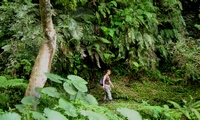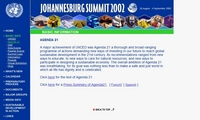Sustainability and tourism
Sustainability in german tourism
Wegeinfrastruktur und Wegemanagement:
Wege im Wald – Grundlage für Gesundheit und Erholung
26. April 2024
in Kooperation mit dem Verbände-Arbeitskreis Nachhaltiger Tourismus
Zusammenfassung der Fachkonferenz
Referate
Die Bedeutung des Waldes für Gesundheit und Erholung
Dr. Stephanie Bethmann, FVA – Forstliche Versuchs- und Forschungsanstalt Baden-Württemberg,
Stabstelle Gesellschaftlicher Wandel
Erholungssuchende im Wald: Übersicht zu den Anforderungen der Nutzergruppen und Arbeit der Verbände zum Wegemanagement
Nico Graaff, Mountainbike Tourismusforum Deutschland e.V.
Projekt „WaldWegweiser“: Konflikte entschärfen – für ein besseres Miteinander zwischen Forst, Naturschutz und Erholung 
Erik Neumeyer, Deutscher Wanderverband e.V.
Good Practice: Partizipativer Prozess zur Wegenutzung 
Gregor Seitz, Landesforsten Rheinland-Pfalz, Forstamt Annweiler
Wegequalität erhalten: Good Practice Wegepflegekonzept zwischen Tourismus, Kommune und Community 
Stephan Marx, Mountainbikepark Pfälzerwald. e.V.
Good Practice: Kooperation in der Wegepflege im Nationalpark Hohe Tauern 
Gabriela Scheierl, Deutscher Alpenverein e.V., Ressort Hütten und Wege, Wegebau und Verwaltung
Good Practice: Wegemanagement 
Mirko Bastion, Schwarzwaldverein e.V.
Freizeitnutzung im Großschutzgebiet: Erstellung und Inhalte der Konzeption Besucherlenkung im Nationalpark Schwarzwald 
Dr. Dominik Rüede, Nationalpark Schwarzwald, Sachbereichsleitung Regionale Entwicklung
Tourism represents an internationally important economic factor, but it also exerts both, positive and negative influences on social, cultural and economic aspects. Therefore, a multitude of initiatives are dedicated to the sustainable development of tourism. ETE supports such initiatives in Germany and other European countries. ETE aims at fostering the implementation of international work programmes and guidelines for sustainable tourism development and carries out model projects.
Read more on sustainable tourism: Definition
The principle of sustainable development
In 1992 in Rio de Janeiro, the United Nations invited the member states to the Conference on Environment and Development (UNCED), also known as the Earth Summit. Among the most important achievements of this conference are the establishment of the UN Framework Convention on Climate Change, the Rio Declaration on Environment and Development, the UN Convention to Combat Desertification, the UN Convention on Biological Diversity as well as the Agenda 21. At the end of the 1990s the discussion on tourism and sustainable development officially started to take place within two international processes: The UN Commission on Sustainable Development (CSD) and UN Convention on Biological Diversity (CBD).
Read more about the background of ETE's work:




